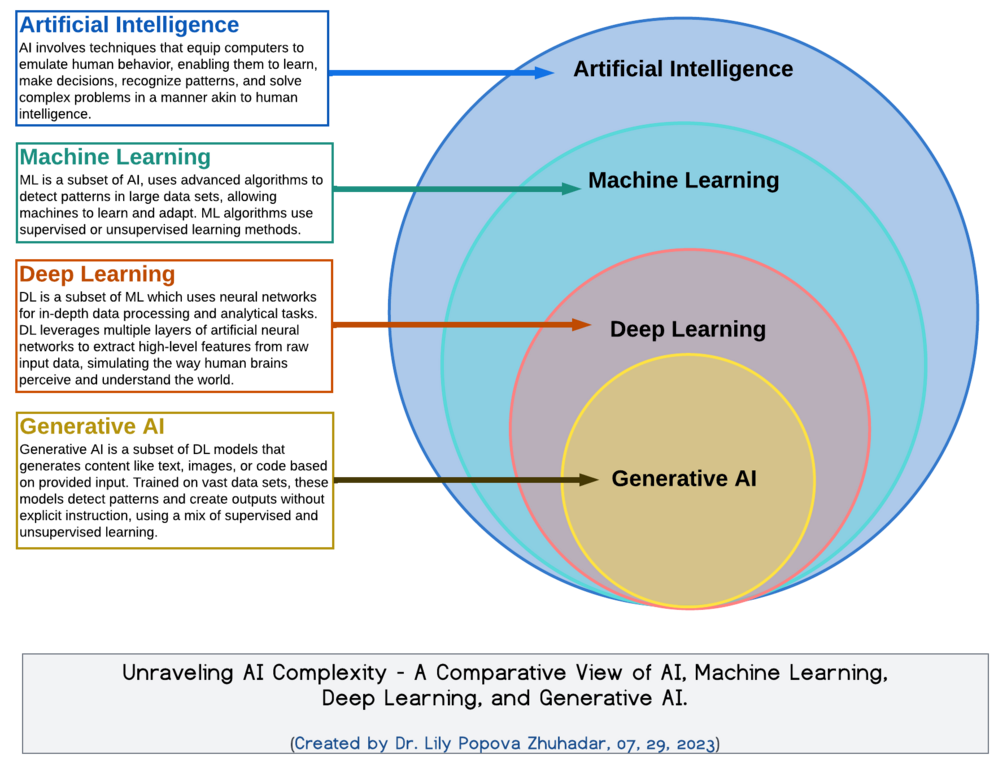
AI is changing how we learn and develop in big ways, especially in education. Think about it: personalized learning isn't just a dream anymore, thanks to AI. A recent study found that 47% of learning and development pros are already using AI to make training programs more tailored and effective. But what's behind this big change? Well, there are adaptive learning platforms that adjust to how fast you learn. Plus, AI-driven analytics can spot where you need to improve with amazing accuracy. The future of education seems more accessible, engaging, and efficient. Let's take a closer look at how AI is shaking up the way we learn and grow.
Summary: Dieser Artikel beschreibt, wie Künstliche Intelligenz die Lern- und Entwicklungsprozesse transformiert, indem sie personalisierte Bildungsansätze und effizientere Lernmethoden ermöglicht. Es wird untersucht, wie AI-basierte Technologien das Potenzial haben, traditionelle Bildungssysteme zu verbessern und an individuelle Bedürfnisse anzupassen.
AI's Role in Revolutionizing Learning and Development
AI's Impact on Transforming Learning and Development
AI is transforming the way we learn and teach by making education more personal and adaptive. This personalization helps learners stay engaged and retain information effectively. AI analyzes vast amounts of data to tailor lessons to individual learning styles, ensuring that learners receive the right content at the right time.
Beyond personalization, AI dynamically adjusts learning experiences based on individual performance. If a task is too easy or challenging, AI modifies it to maintain learner engagement and challenge. This adaptability enhances comprehension and retention. Additionally, AI identifies areas where learners need assistance and suggests improvements for training programs.

AI also streamlines administrative tasks such as grading, scheduling, and reporting. This automation frees educators to focus on more critical aspects of teaching. AI tools can analyze trends and outcomes, enabling organizations to refine their learning strategies.
Essential AI Features Enhancing Learning and Development
AI introduces several features that enhance learning experiences and training programs:
Personalized Learning with AI
AI customizes learning based on individual roles, preferences, and performance metrics. This tailored approach makes learning more engaging and effective, whether in educational institutions or corporate environments. By analyzing data, AI crafts personalized learning paths that align with each learner's needs.
Adaptive Learning Powered by AI
AI ensures that training evolves with learner progress, keeping them engaged and aiding retention. This prevents learners from becoming bored with simple content or overwhelmed by complex topics. AI monitors progress and provides additional support when necessary.
AI-Driven Content Generation
AI accelerates the creation of training materials and activities, saving time and resources. It can generate content in multiple languages and formats, ensuring materials remain current and relevant. This capability is especially valuable in rapidly changing industries.
Instant Feedback through AI
AI delivers prompt, detailed feedback, aiding learners in understanding concepts and identifying areas for improvement. This continuous feedback loop supports ongoing learning and helps learners achieve their goals more efficiently.
AI for Enhanced Accessibility
AI tools enhance accessibility for all learners, including those with disabilities. Features like text-to-speech and speech recognition ensure that educational content is available to everyone, promoting equal learning opportunities.
Implementing AI in Learning and Development
Effective AI integration requires careful planning:
Aligning AI with Learning Goals
AI initiatives should align with organizational goals and be assessed regularly to ensure they enhance learning outcomes. This alignment ensures AI projects are valuable and contribute to continuous improvement.
Importance of Human Oversight in AI
Despite AI's capabilities, human oversight is essential to maintain quality and ethics in AI-generated content. While AI automates many tasks, human judgment ensures alignment with values and ethical standards.
Ensuring Data Privacy and Ethical AI Use
Organizations must prioritize data protection and ethical AI usage. Transparent communication about data usage fosters trust and ensures responsible AI implementation.
Agility and Scalability with AI Integration
AI enables quick updates and adjustments based on feedback, making learning programs more flexible and scalable—essential in today's fast-paced environment.
Evolving Roles in AI-Driven Learning
AI shifts the focus of Learning and Development (L&D) professionals from content creation to designing AI tools and emphasizing the human aspects of learning, reflecting AI's evolving role.
Real-World Applications of AI in Learning
Numerous organizations demonstrate AI's transformative impact on learning:
AI-Created Customized Learning Paths
AI creates tailored learning paths, such as step-by-step courses or on-demand videos, enhancing relevance and engagement.
AI in Multilingual Content Creation
AI rapidly produces training materials in various languages, benefiting global teams by ensuring access to quality learning resources.
Inclusive Education with AI Tools
AI technologies like speech recognition make lessons accessible to students with special needs, fostering an inclusive learning environment.
AI for Immediate Assessment Feedback
AI provides instant feedback, enabling learners and instructors to improve outcomes and adjust learning strategies swiftly.
Human-AI Collaboration in Education
The synergy between humans and AI maximizes educational benefits. AI handles routine tasks, while educators contribute creativity and empathy.
Enhancing Educator Effectiveness with AI
AI offers educators insights into learner behavior, enabling tailored teaching. With reduced administrative burdens, educators can focus on meaningful interactions.
AI Supporting Continuous Learning
AI supports continuous learning by offering personalized development paths. Educators can leverage AI to stay informed on trends and skills.
Balancing AI Automation and Human Touch
While AI enhances efficiency, human educators are essential for mentoring and inspiring learners. AI should augment, not replace, human contributions.
Future Trends of AI in Learning
AI's role in education will continue to expand, offering new opportunities to enhance learning experiences:
AI Advancements in Personalized Learning
Future AI will incorporate more data, including emotional and social cues, to further personalize learning.
AI Integration with Emerging Technologies
AI will integrate with technologies like blockchain and IoT to create secure, immersive learning environments.
AI Expanding Access to Education
AI can democratize education, providing quality learning to underserved populations and helping bridge global skill gaps.
Ethical Development of AI in Education
As AI advances, ethical development becomes crucial. Organizations must prioritize transparency and fairness to ensure AI benefits all.
FAQ Section
How does AI personalize learning experiences?
AI uses data on behavior and performance to tailor content and feedback, addressing each learner's unique needs.
What role does AI play in identifying skill gaps?
AI analyzes data to identify skill gaps, guiding targeted improvement efforts and informing training strategies.
Can AI replace human educators in L&D?
AI complements, rather than replaces, educators. It manages routine tasks, allowing educators to contribute empathy and creativity.
What are the ethical considerations when implementing AI in L&D?
Ethical AI use involves ensuring data privacy, transparency, and fairness, promoting responsible use and equal access.
How can organizations prepare for AI integration in L&D?
Organizations should assess current systems, select appropriate AI tools, and train educators, with a focus on ethics and privacy.